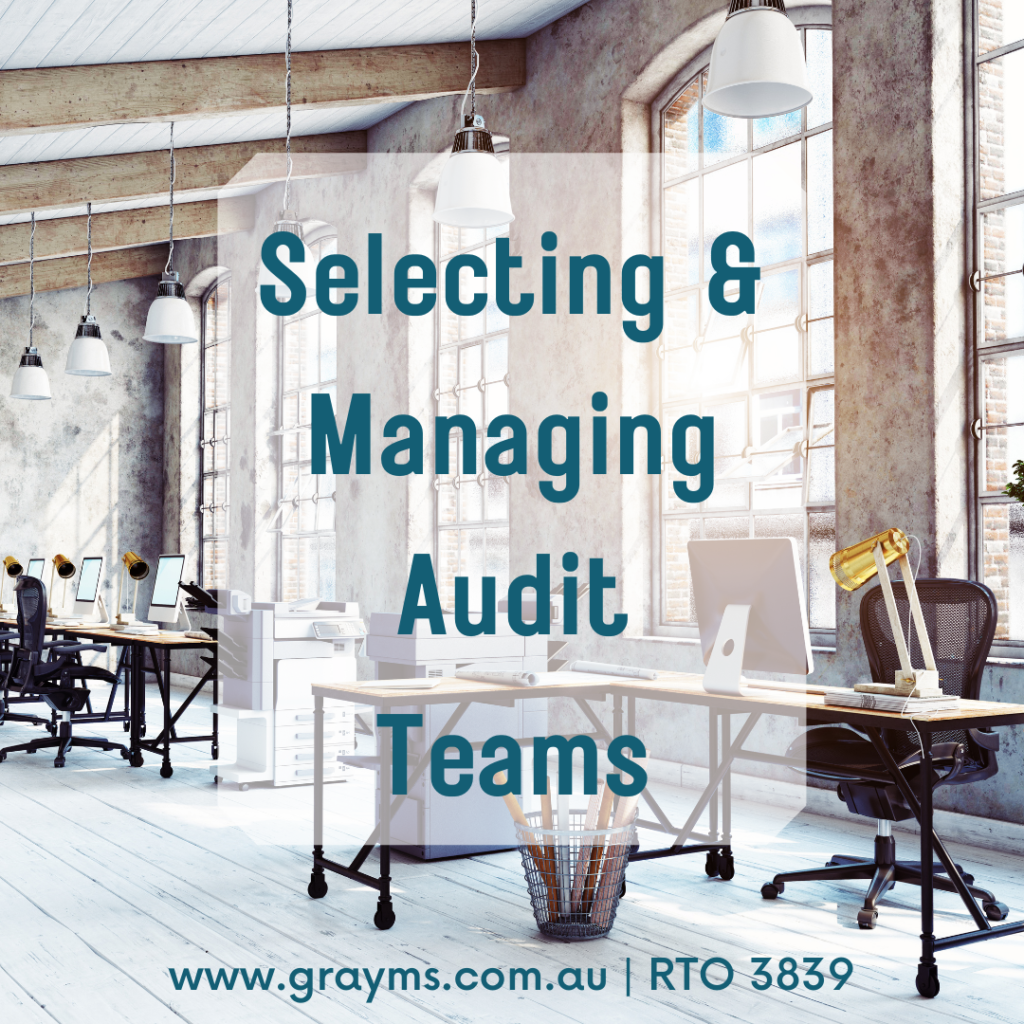Steve Robinson from Rightstrategy is an educator at Gray Management Systems delivering a variety of accredited training courses including, Manage Business Risk, Facilitate Continuous Improvement, Manage Project Quality and Manage People Performance. Steve is our resident risk guru and strategy expert.
The role of Lead Auditor is very important for achieving audit outcomes but it also comes with implicit responsibilities for properly selecting and managing a team.
Some Lead Auditors are very good at planning and preparing for the proposed audit scope and most times will have a successful outcome, some are just naturally good at it, but for other is it just luck or is it good planning that the audit has been successful?
In the case of multiple team members, the cohesion and harmony of the audit team is paramount to the overall success of the audit. The success of the audit should not just be judged by the number of findings or the quality of audit findings gathered during the audit. There are other considerations such as the efficiency of work to be performed, how effectively the team can work together, and ensuring that the client organisation has a positive experience that motivates them in the right direction.
The Lead Auditor must have skills far greater than just simply ‘time under their belt’ or ‘on the job experience’. They must be able to competently select team members based on all of the needs of the audit and then plan and manage team members both as individuals and collectively as a team in order to get the best performance possible.
Inadequate team selection, a lack of good quality audit planning, and an inability to effectively manage teams can be disastrous, and the Lead Auditor can become unstuck very easily when unexpected events present themselves.
The selection of audit team members is more than just a decision regarding previous experience with the proposed scope. Rather, it has a lot to do with the audit client and the audit team member’s ability to fit the cultural development of the client organisation as well as being able to relate well to the other audit team members.
The Lead Auditor also has responsibility and indeed legal obligations for the safety of their audit team, the client organisation representatives, and possibly members of the public as well.
This responsibility goes far beyond just physical safety and should include their social and psychological wellbeing. Of course, there are many other examples where planning for optimal team performance is necessary, we are not going to cover them all here but what about matters of privacy, responsibilities for intellectual property, emergency situations, self-responsibility and expectations for auditor performance that can often go unstated until it is too late.
As compliance practitioners we know that ‘prevention is better than the cure’. If your audit team selection and planning process is not holistic and flawed it will be a lot more difficult to manage when a difficult situation arises.
If you have properly laid down all expectations and boundaries for audit participants it is far more likely that you are going to have anticipated the potential for these issues to occur and have contingencies in place for managing them rather than being caught in an embarrassing or even worse situation.
Our Lead Auditor Training addresses much more than the standards require, we provide solutions for audit leadership and industry best practice.
For further information and course dates, click here.

